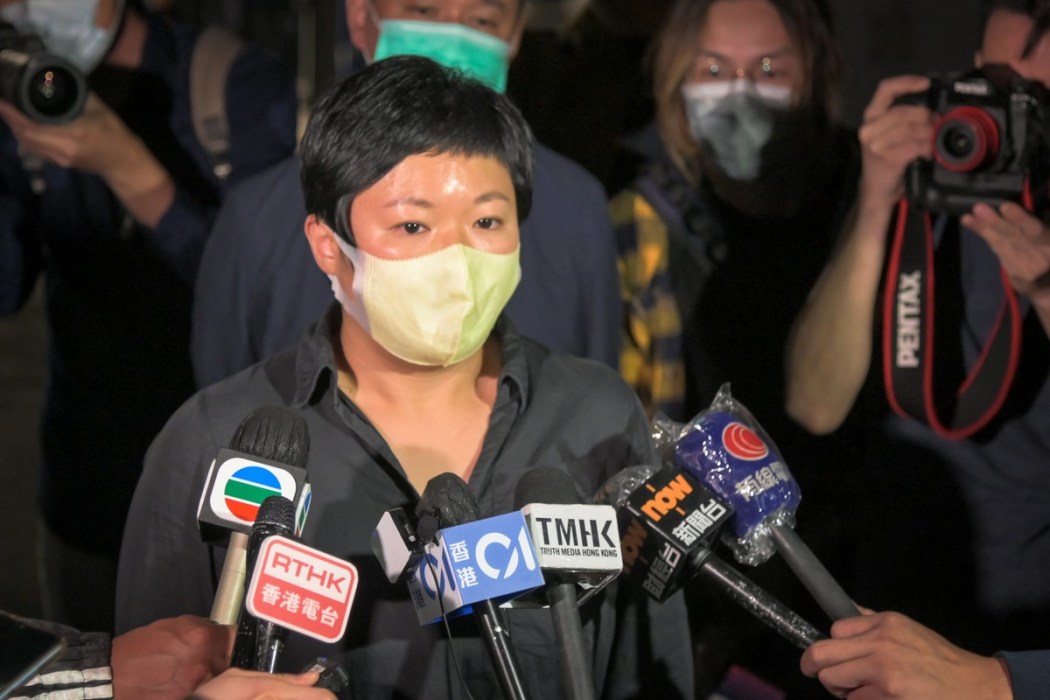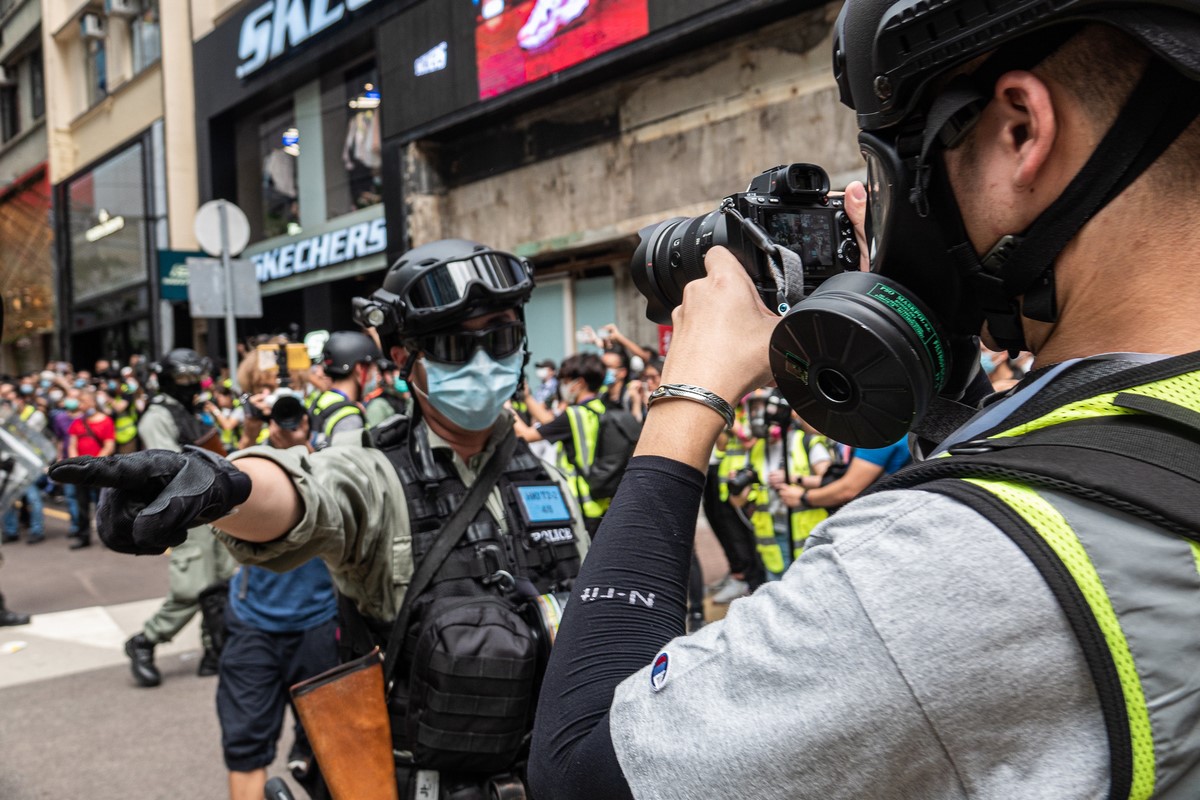The days leading up to the US presidential election, and those immediately afterwards, seemed to go on forever. Election coverage was on television 24/7. You saw people scrolling through updates on their phones in elevators, looking at the latest polls as they rode the subway, and glancing at the news crawl on every television in every store window.
No matter who you talked to and regardless of the original topic, within a few sentences you were back to the election.

Last weekend’s declaration of Joe Biden as the victor brought the contest to a close but the United States remains a very divided nation. While Biden received the most votes in the history of US presidential elections, Trump received the second most. Both the Democrats and Republicans drew more voters to the polls than in previous elections. But the two sides remain far apart in their views on everything from taxes, to social justice issues, to health care to trade.
While the Democrats control the White House and the House of Representatives, the Republicans still hold the Senate at this point in time. All this could have profound effects on US domestic policy and shape international policy also.
The deep-seeded divisions in the US, and the partisan rhetoric that has become a hallmark of the outgoing administration, will take a long time to heal. The world is a much different place from what it was when Trump was elected, and America’s role on the world stage is likewise not what it used to be.

As always, there is more to the world news than just what is happening in the United States. But these events are all issues to be faced by the new president as he shapes his foreign policy in the wake of the America First stance of the previous leader.
In recent weeks there have been terrorist attacks in France. Azerbaijan and Armenia are continuing their war over the disputed area of Nagorno-Karabakh. Ethiopia is on the verge of civil war. There have been contested elections in Tanzania and Ivory Coast. Protests are continuing in Thailand against the monarchy and the army-dominated government. And an election in Myanmar is predicted to keep the National League for Democracy and Aung San Suu Kyi in power despite charges of genocide over the treatment of the Rohingya. On top of everything, there is still Covid-19.

Meanwhile in Hong Kong, attacks on freedom of the press continue.
Last week Choy Yuk-ling, a producer for RTHK, was arrested after reporting the slow response by police to an attack by a white-clad mob on protesters, journalists and residents at Yuen Long. Her crime? Using licence plate information from a publicly accessible database to track those in the vicinity at the time of last year’s attack.
A student journalist, Nelson Tang, was charged with obstructing police and resisting arrest stemming from a May 8 event at Central’s IFC Mall where dozens gathered in a pro-democracy sing-along. Tang had apparently been recording the events, and while wearing a press pass, was surrounded by police and subdued. He was heard stating that he had been beaten by police and photographs show him with a bloody nose.
Finally, a journalist for Ben Yu Entertainment was detained for filming the arrest of two women on Sai Yee Street in Mong Kok. She was accused of obstructing police after refusing to stop recording the encounter. She was reportedly pepper-sprayed, had her camera snatched away, and was then subdued until she lost consciousness.

Chief Executive Carrie Lam, in reference to Choy’s arrest, said that “there is no selective law enforcement or selective prosecution.” She went on to say that “press freedom is still guaranteed under the Basic Law” and “we will not suppress press freedom.” But she then also stated that “news professionals should abide by the law” and refused to comment on the legal proceedings against Choy.
The arrest of three journalists in such a short period, combined with Lam’s comments about journalists and the law, send a very strong signal about what will happen to those who seek to police the police. Those who question people in positions of authority and question the rule of law and order, despite what Lam states, appear to be held to a different standard than those who don’t. Actions speak much louder than words and these arrests appear to undermine all that the Chief Executive has said. They further emphasise the dominance of the national security law over the Basic Law and the caveats on freedom of the press that it contains.

President Donald Trump’s attacks on the press, and the language he used against journalists, are well known. The term “fake news” became a catchphrase for any story unflattering to the administration. It became a mantra for pro-Trump voices in Washington and was also picked up by more authoritarian leaders and their administrations. As Trump’s words echoed across the globe, press freedom suffered.
With Joe Biden poised to become the next president, what will be America’s stance on issues of press freedom? Will journalists’ power as the fourth estate be strengthened, or will the press continue to be vilified for the work it does to inform? What will the new administration’s stance be on China and the trade war? Will the weaponisation of press visas continue to be a policy of that war? Will the US position on Hong Kong’s national security law change?

These are all questions without hard answers at the moment. But in the election of Biden there is palpable hope that America will return to its position as the “city on a hill” and to its role as a beacon of freedom and democracy in the world.
The situation of journalists around the globe is never secure. But there is once again hope that an American administration will stand up for press freedom and fight for its ideals, rather than vilify the work journalists do and stand by as they suffer crackdowns.
How America’s posture will change regarding the US, Hong Kong and China remains to be seen. But Joe Biden is not Donald Trump, and in that fact alone things will change. No matter what, the press will be there to report it all and hopefully will have a powerful ally at their back as they do.
Support HKFP | Policies & Ethics | Error/typo? | Contact Us | Newsletter | Transparency & Annual Report | Apps
| HKFP is an impartial platform & does not necessarily share the views of opinion writers or advertisers. HKFP presents a diversity of views & regularly invites figures across the political spectrum to write for us. Press freedom is guaranteed under the Basic Law, security law, Bill of Rights and Chinese constitution. Opinion pieces aim to point out errors or defects in the government, law or policies, or aim to suggest ideas or alterations via legal means without an intention of hatred, discontent or hostility against the authorities or other communities. |
Help safeguard press freedom & keep HKFP free for all readers by supporting our team

More HKFP OPINION:
HKFP has an impartial stance, transparent funding, and balanced coverage guided by an Ethics Code and Corrections Policy.
Support press freedom & help us surpass 1,000 monthly Patrons: 100% independent, governed by an ethics code & not-for-profit.










